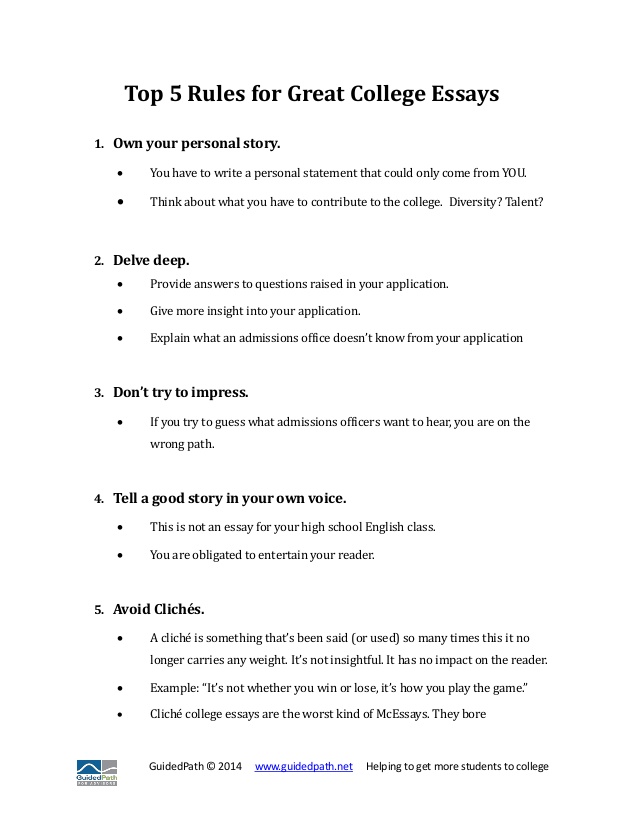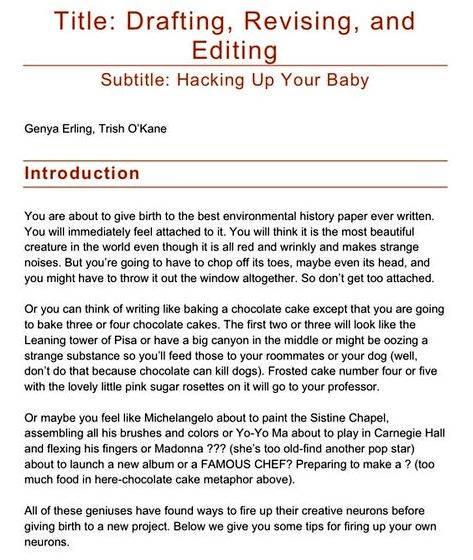
FOR WRITING A THESIS OR DISSERTATION. CONTENTS: Guidelines for Writing a Thesis or Dissertation, Linda Childers Hon, Ph.D. Outline for Empirical Master’s Theses, Kurt Kent, Ph.D. How to Actually Complete A Thesis: Segmenting, Scheduling, and Rewarding, Kurt Kent, Ph.D. How to Make a Thesis Less Painful and More Satisfying (by Mickie Jul 07, · Thesis Writing Basics: Choosing an Undergraduate Thesis Topic. An undergraduate thesis is the culmination of a college experience, and if you have the opportunity (or obligation) to write one, you will probably approach it with a mix of anxiety and anticipation. It is your chance to write something that is almost entirely self-directed: it will Writing Books. There any number of books on writing styles which can be found at the library, the local bookstore, or even a discount bookstore. You may find some examples of how to write a lengthy thesis in the pages of any of these books. Never think of an example as an easy way out
10 Tips on Writing an Undergraduate Thesis - National Student Network
Most undergraduate students at Walden have been out of high school or college for several years, so academic writing can feel unfamiliar. Just like anything else, though, writing is a skill you will learn to develop with practice. Walden courses are fast-paced, often with a paper assignment due every Sunday night. No matter how hard you try, you cannot write a perfect, polished essay at the very last minute.
Schedule studying and writing times throughout the week, taking into account your work and family responsibilities. You might find that writing a little bit each day, in chunks, helps manage your assignment load. The College of Undergraduate Studies created the AWE to help you build your writing skills with each course level.
In early courses, you practice writing compelling sentences and paragraphs and integrating evidence. Later on, you learn more about citations and references in APA style, as well as essay-level skills. Consult the AWE for your current course level. Do your abilities match the expectations listed? Use the AWE to create goals for yourself.
Within your courses, there are several powerful tools to help focus and develop your writing. First, the assignment instructions give you important information about the length of the assignment and the topics you should cover. Use these instructions as an outline as you are writing. Second, the rubric tells you how your work will be assessed. If a certain part of the assignment is worth more points on the rubric, you know advice for writing an undergraduate thesis should devote a lot of attention to it.
For more tips on writing and revising using your assignment materials, listen to this podcast episode or view our Revising webinar.
At Walden, most communication with peers and professors occurs in writing. You are also assessed on your writing via discussion board and essay assignments. This attention to writing can be scary, especially for students who have been away from an academic setting for some time. You might need to start journaling or find a writing buddy to feel more comfortable. See our Writing Through Fear blog post for more tips. One of the fundamental ways to learn is through the written feedback from your professor.
This might seem like a simple statement, but some students do not ever access this written feedback, and so they miss out on a valuable opportunity. In those comments, you should see your attached submission with specific feedback embedded. Read our page on Using Feedback for more tips and download a feedback journal as a way to keep track of suggested improvements.
In most assignments, you need to discuss a topic and have a reason for discussing that topic. Rather than just summarizing, you need to analyze and convince your reader of something. For example, if your topic is electric cars, your purpose might be to convince the reader that electric cars are an efficient alternative to gas cars.
This means that every paragraph will be part of your overall goal to argue this point. Kayla explores the importance of argument in her blog post Argue Is Not a Dirty Word. As an academic writer, you use information from books, journal articles, and trusted websites to support your argument. To present this information ethically and with integrity, you need to give credit to the original source. At Walden, students give credit through APA citations in the text. Citations should accompany any ideas, information, or phrasing from others.
You will gain familiarity with APA style as you progress through your program; for now, see our APA video playlist for an overview. All of your discussion posts and papers should have an introduction, a body, and a conclusion.
An introduction provides background on the topic and includes your thesis statement. In essence, the introduction prepares the reader for all of the main points you will be making in the body. The body is where you develop your argument, paragraph by paragraph. Your conclusion acts as a summary and helps the reader understand the significance of the information presented. A formal, direct, and precise voice is expected in college-level writing. This means that you should avoid informal language such as colloquialisms, slang, metaphors, clichés, and jargon, as well as questions and contractions.
Instead of having a conversation with the reader, you are an authority building an argument. The reader needs to trust in you. Because the goal of academic writing is to clearly communicate, you should ensure that your writing follows proper American English grammar and sentence structure rules. Otherwise, a reader might become confused, advice for writing an undergraduate thesis.
The Grammar page of our website provides explanation on many common grammar concerns. You might also find Grammarly helpful; Grammarly is an automated program that identifies potential sentence errors and offers revision tips.
Didn't find what you need? Search our website or email us. Read our website accessibility and accommodation statement. Walden University Academic Guides Writing Center Undergraduate Writing Top 10 Writing Tips for Undergraduates. Undergraduate Writing: Top 10 Writing Tips for Undergraduates. Print Page Report a broken link.
Plan Your Advice for writing an undergraduate thesis 2. Know the Academic Writing Expectations AWE 3. Use the Assignment Instructions and Rubric 4, advice for writing an undergraduate thesis. Get Comfortable With Writing 5. Read Your Professor's Feedback 6. Make an Argument 7. Practice Academic Integrity 8. Organize Your Ideas 9. Develop an Academic Voice Revisit Grammar and Sentence Structure Webpage Feedback, advice for writing an undergraduate thesis.
Top 10 Writing Tips for Undergraduates Most undergraduate students at Walden have been out of high school or college for several years, so academic writing can feel unfamiliar. Plan Your Time Walden courses are advice for writing an undergraduate thesis, often with a paper assignment due every Sunday night. Know the Academic Writing Expectations AWE The College of Undergraduate Studies created the AWE to help you build your writing skills with each course level.
Use the Assignment Instructions and Rubric Within your courses, there are several powerful tools to help focus and develop your writing. Get Comfortable Advice for writing an undergraduate thesis Writing At Walden, most communication with peers and professors occurs in writing.
Read Your Professor's Feedback One of the fundamental ways to learn is through the written feedback from your professor. Make an Argument In most assignments, you need to discuss a topic and have a reason for discussing that topic. Practice Academic Integrity As an academic writer, you use information from books, journal articles, and trusted websites to support your argument. Organize Your Ideas All of your discussion posts and papers should have an introduction, advice for writing an undergraduate thesis, a body, and a conclusion.
Develop an Academic Voice A formal, direct, and precise voice is expected in college-level writing. Revisit Grammar and Sentence Structure Because the goal of academic writing is to clearly communicate, you should ensure that your writing advice for writing an undergraduate thesis proper American English grammar and sentence structure rules. Student Wellness and Disability Services Any concerns about accessibility of materials on this site or compatibility with assistive technology should be addressed to disability mail.
Walden Departments, Centers, and Resources. Walden Departments, Centers, and Resources Departments Academic Residencies Academic Skills Center Career Planning and Development Customer Care Team Field Experience Library Military Services Office of Student Affairs Office of Student Experiential Learning Services Student Success Advising Student Wellness and Disability Services Writing Center.
Centers Office of Academic Support Center for Degree Acceleration Office of Research and Doctoral Services Center for Social Change. Walden Staff Login.
How To Write A Dissertation at Undergraduate or Master's Level
, time: 26:41Writing Tips for Theses: Department of Political Science - Northwestern University

It’s time you broke free from your wearing studies and received the professional writing assistance you deserve. “Write my essay” – this is all you need to ask for us to get started with your writing assignments! WriteMyEssayOnline knows how to get you through your Tips For Writing An Undergraduate Thesis academic trials FOR WRITING A THESIS OR DISSERTATION. CONTENTS: Guidelines for Writing a Thesis or Dissertation, Linda Childers Hon, Ph.D. Outline for Empirical Master’s Theses, Kurt Kent, Ph.D. How to Actually Complete A Thesis: Segmenting, Scheduling, and Rewarding, Kurt Kent, Ph.D. How to Make a Thesis Less Painful and More Satisfying (by Mickie Writing Books. There any number of books on writing styles which can be found at the library, the local bookstore, or even a discount bookstore. You may find some examples of how to write a lengthy thesis in the pages of any of these books. Never think of an example as an easy way out
No comments:
Post a Comment